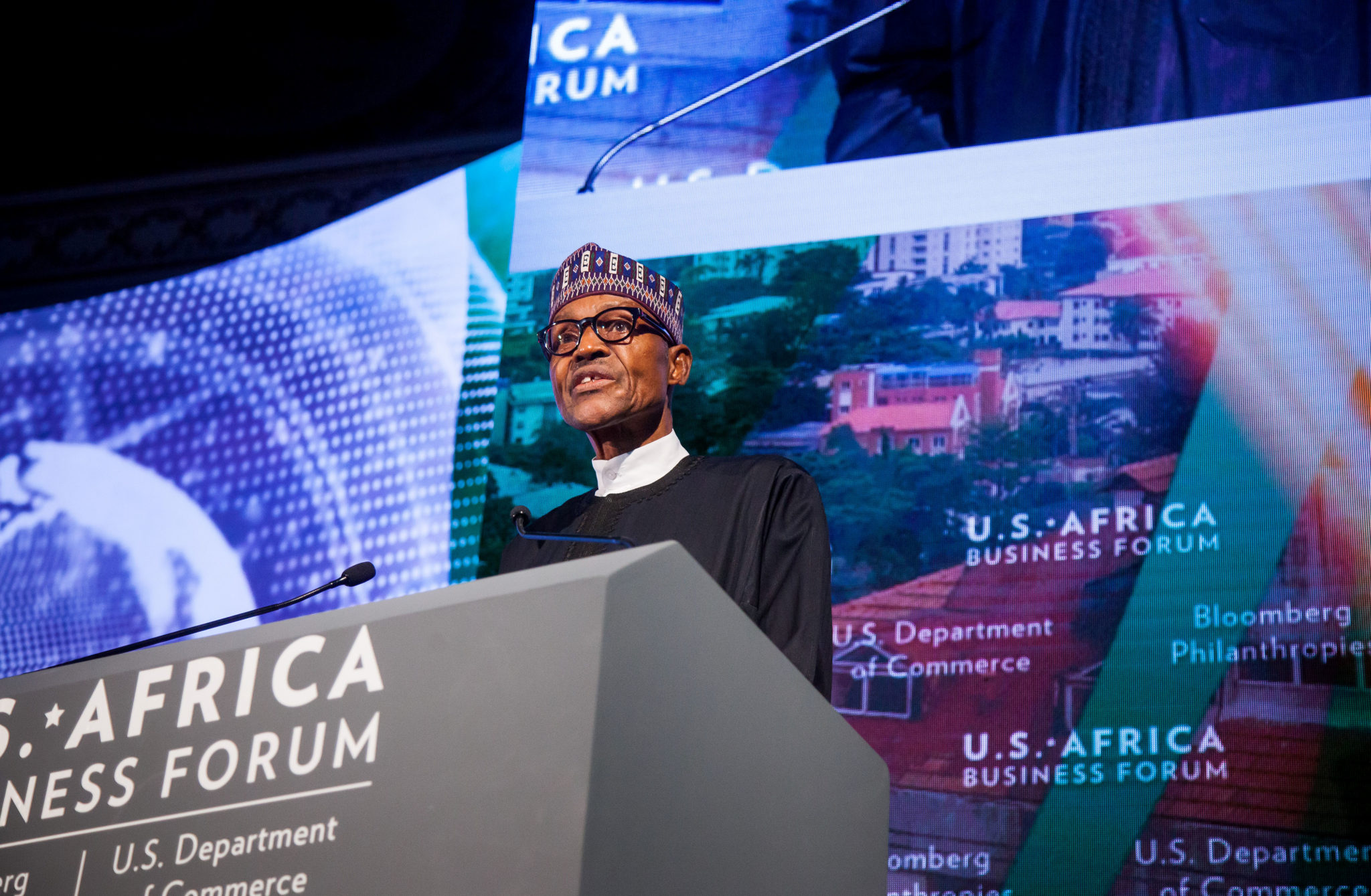Two of the largest banking and financial services institutions in the world, HSBC and UBS, have recently closed their local representative offices in Nigeria.
There’s also trouble brewing elsewhere in Nigeria’s business world that’s prompted fears about the climate for foreign direct investment in the country. Foreign direct investment is an investment made by a firm or individual in one country into business interests located in another country.
For instance, Nigeria’s government in September accused HSBC of money laundering after an analyst working for the lender said a second term for President Muhammadu Buhari may stall economic recovery in Africa’s biggest oil producer.
There are also tensions between Nigeria’s central bank and the South African telecom company MTN. In 2015, MTN was fined about $5bn for failing to cut off unregistered SIM cards. This was later reduced to $1.7 billion after a long legal dispute and the intervention of South Africa’s then President Jacob Zuma.
Recently, the central bank has ordered MTN to repatriate $8 billion it said has been taken out of the country illegally.
Analysts are concerned that the Nigerian government’s attitude towards MTN and the two banks may erode the confidence of foreign direct investors. Their fears seem to be well founded: foreign direct investment in Nigeria fell to $1 billion in the first half of 2018, from $1.48 billion in the first half of 2017.
Foreign direct investment is crucial for any economy. So how can Nigeria attract and keep the right kind of investment from global companies? Compromise will be key, both for the government and foreign firms.
Why foreign direct investment?
Foreign direct investment is often preferred to exporting. That’s because while exports merely involve moving goods from one country to another, foreign direct investment actually involves an investor establishing foreign business operations or acquiring foreign business assets.
This often includes establishing ownership or controlling interest in a foreign country (for instance an American business establishing a physical business presence in Nigeria). Many emerging economies like China, Brazil, Vietnam and India have built their growth on FDI flows.
The trick is to attract “quality foreign direct investment” that links foreign investors into the local host country economy. The International Growth Centre, a British-funded research centre that aims to promote sustainable growth in developing countries, characterises “quality” here as contributing to:
- decent and value-adding jobs and enhancing the skill base of host economies;
- transfer of technology, knowledge and know-how;
- boosting competitiveness of domestic firms and enabling their access to markets.
What Nigeria can do
There are a few things Nigeria can do to boost foreign direct investment. For starters, it must play fair. Foreign and domestic businesses should be treated equally. They should be open, transparent and dependable conditions for all kinds of firms.
Another area that needs attention is infrastructure. Businesses need easy access to ports, an adequate and reliable supply of energy and relative certainty that the country will be good to invest in.
Good institutions also promote FDI.
The government should encourage partnerships between foreign and local businesses. Foreign firms might be familiar with global good business practices, but local firms will be more familiar with the indigenous context. This synergy could be very beneficial.
It’s also critical that Nigeria gets its regional governments involved: there are many regions in Nigeria, and these regions all have unique opportunities and challenges.
Our latest research shows that when the central government of Nigeria ran out of ideas and foreigners wanted to exit the agricultural sector, the regional government of Kwara state stepped in to create a positive business climate based on the cooperation of local banks, community members, and the foreigners themselves culminating in the Shonga farms public-private venture.
This has kept the firm in Nigeria. It’s also brought private investors to the table, bolstering the firm and the local economy.
Nigeria should also tap into its huge diaspora. There are many Nigerians living outside the country who understand its challenges. They should be encouraged to help, or asked to work with their networks to invest in the country.
What foreign firms can do
Foreign firms also have a role to play. They can enhance their success in Nigeria (and elsewhere on the African continent) in several ways.
First, they need a long term strategic plan. This means thinking carefully about what sectors or activities to target. Many foreign firms come to developing countries when things are rosy but leave when conditions change. They don’t properly consider that solving such problems will gain them a competitive advantage in the long run.
If they stay and follow a learning curve, foreign firms will better understand the local business context. They’ll also gain credibility among ordinary people and possibly get more customers and support that way.
In the same vein, foreign businesses should create local solutions that meet ordinary people’s needs. The banks leaving Nigeria have been accused of only catering to the needs of wealthy Nigerians, who are perceived as corrupt. A more diverse portfolio that catered to the needs of ordinary Nigerians would have nullified this claim.
Foreign firms must also work closely with credible and strategic local firms, and be willing to enter into dialogue with the Nigerian government where necessary. This is crucial especially as administrations may change or government policy may evolve. Dialogue could ensure that all parties are on the same page.
Act local, think global
It’s unfortunate that these banking institutions have decided to leave Nigeria. Hopefully both the Nigerian government and other foreign investors can learn from this.
The main takeaway for both foreign investors and governments involved in foreign direct investment is that it would be prudent for all parties to act locally but think globally.
- Tolu Olarewaju: Lecturer in Economics, Staffordshire University
READ MORE | Nigeria: To Invest Or Not To Invest? That Is The Question
READ MORE | Investment Marketplace Coming To Africa
